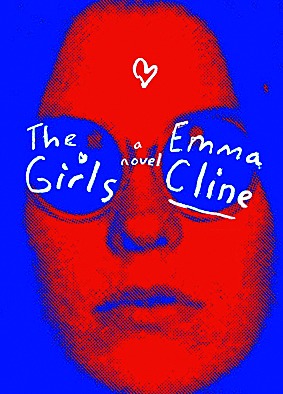
THE GIRLS By Emma Cline, Chatto & Windus, Rs 599
Only a few homicidal maniacs have managed to seize the public imagination like Charles Manson. And yet, the most intriguing part of the tale of the "Manson family" has always been the girls. No one knows whether Manson actually believed in his deranged manifesto envisioning a race war and ultimate power for himself, or whether he was just using it to secure his own ends, but the girls in his cult - Patricia Krenwinkel, Susan Atkins and Leslie Van Houten - were true believers. So much so that, upon Manson's bidding, they killed seven people in 1969. When Manson and his cult members were tried the following year for the grisly crimes, the most chilling photographs circulated by the media were not of Manson, but of Van Houten, Krenwinkel, and Atkins. They held hands and chortled like schoolgirls as they were steered into the courtroom. It was as though they were at a pyjama party, rather than on death row.
While Manson's story has always taken centre stage, those of the three girls have been sidelined. When they are mentioned in passing, they are either vicious murderers, or helpless puppets, or both. But Emma Cline's debut novel, The Girls, examines the Manson Family killings by pushing the commander aside and focusing wholly on the girls. The novel - a fictionalized account of the time at the Manson Family ranch prior to the murders - is narrated by Evie Boyd, a 14-year-old recruit into the cult, and explores the rotten remnants of the counterculture of the Sixties.
Evie first lays eyes on the girls in a park in San Francisco. With their flowing, messy hair, bare feet and shabby, skimpy clothes, they give her a glimpse of a life beyond her lonely, bourgeois existence in a sleepy suburb. The girls, "like royalty in exile," seem to offer dreams of another world, one in which Evie does not have to deal with her parents' absence and the constant effort of trying to appear attractive. Evie is so blinded by their beauty that she is unable to see that they are just as trapped as she is. They turn out to be followers of a self-proclaimed guru, Russell - the Manson stand-in - who makes Evie have sex with him. The group is penniless. Evie spends all her time with them, and buys them food and toilet paper. She even steals from her mother to make them happy; as the weeks pass, she is forced to resort to more extreme measures to prove her devotion. Her loneliness and desperate longing to be accepted are painful, but also easy to identify with. Evie can see that the cult is trouble, but is so happy to belong somewhere that she cannot stay away from it.
The author draws most of her inspiration from the Manson story, but she does make one important departure. It is well-known that Manson wielded complete power over his cult, and held the girls in sexual and psychological thrall. However, Russell is not the centre of Evie's universe. It is Suzanne, the girl who becomes Evie's lover, mother, sister, and eventual saviour. Evie wants Suzanne's touch; when her family takes her home, Suzanne is the only one who can get her back. As Evie says, "I couldn't explain it to myself, the wrench I got from looking at her."
Cline covers fascinating ground in trying to examine how Manson was the driving force behind the girls' actions, and what made them so vulnerable to him. But she also becomes bafflingly creative with her language: she pens lines like, "Donna spooked her hands dreamily" and "The words slit with scientific desire." These metaphors are, at best, perplexing. Then, towards the end, when the girls go to kill a musician who did not make good on his "promise" to get Russell a record deal, Suzanne throws Evie out of the car. As a result of this, Evie is not there when the crime is committed. This distance between the protagonist and the central event of the book is off-putting. Since Evie was not there when the murders happened, the conclusion rings hollow. By turning Evie's perspective into that of an outsider, the novel, disappointingly, steers clear of the murkier nature of the rest of the cult.
At the end, Evie says that the culture of patriarchy has the power to turn any girl murderous. This rings true initially, but one is less convinced upon further thought. Girls and women deal with misogyny and abuse all the time; how many of them become mass murderers? In the novel, the girls do not turn on Russell, their tormentor; instead they destroy their own lives for him.










